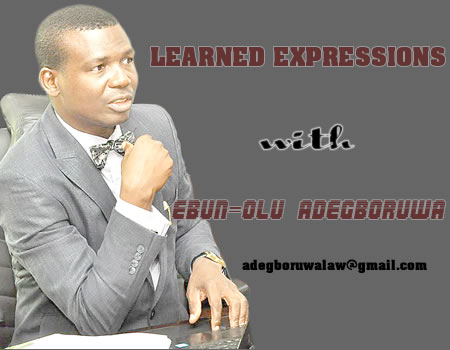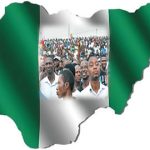
In all the places where the sham primary elections were held, it was impunity, violence, thuggery, brigandage and total lawlessness, all through. All that the politicians wanted was just to anoint candidates and impose them on the parties. The APC had its largest share of these wanton manipulations, with parallel primaries in Bauchi, Taraba, Cross River, Imo, Delta and Ondo states. In places like Zamfara and Taraba states, it is not yet certain if the APC will be able to field candidates for any election in 2019, whilst in Ogun State, the incumbent governor is threatening to dump his party, as he seemed to have lost out in the scheme of things. In that same state, it was reported that cars were vandalised, houses torched, persons beaten up and brutalised and charms and ammunition had free reign, in the course of the primary elections.
In Akwa Ibom State, it was all an orgy of violence, with guns booming at the venue of the governorship primary election to decide on the APC governorship candidate. In some online video monitored in Lagos State, some party members complained of open molestation and harassment and even curses, from certain political tendencies. It was reported that a particular candidate for a primary election in Delta State was misled to another venue, whilst the real election was ongoing in another location. At the last count, a group of APC aspirants had signed an open letter to the chairman of the party, asking him to resign his post, due to the rivalry and rancour that attended the conduct of primary elections of the party, nationwide.
It got so bad that candidates and party members don’t even know which guideline or procedure to follow, as between the National Working Committee, the National Executive Committee, the State Executive or the Aso Villa cabal. The party leadership cleverly outsmarted its members, by cunningly adopting different modes of conducting its primaries, through the direct and indirect methods, such that they could switch here and there, depending on the preference of the leaders. If they suspected that their preferred candidate may not emerge through election conducted by secret ballot, they would declare for option A4; if they have the slightest inkling that open secret ballot may not favour their candidate, they then vote in favour of indirect primaries. In many instances, the APC brazenly overruled the election committees set up for the primary elections, resulting in deadlocks in almost all the APC-controlled states.
For the PDP, it was a predictable case of a leopard not willing to change its spot, as for instance, in Benue State, people were seriously injured and several cars destroyed during the governorship primary election. There was a case of falsification of delegates list, for the same election. In Ogun State, a particular party chieftain secured judicial intervention to get his candidates foisted upon the party, even without any election. The PDP theatrics hit the zenith at the Amiesiemaka Township Stadium in Port Harcourt, during the presidential primary election, when bureau de change operators had hectic time in containing the demand for currency exchange, having been bombarded by delegates wishing to convert their booty. It was reported that virtually all the candidates opened their dollar reservoirs to fill up the huge pockets of the delegates.
APGA was not similarly spared of the acrimony that greeted the primary elections, as happened during the senatorial primary election involving the wife of its founder, Bianca Ojukwu. Armed thugs invaded the venue, raining bullets and wielding dangerous weapons, for an election that was to be by secret ballot. The same scenario played itself out in the other political parties.
Before now, the courts had helped to douse the tensions arising from party primary elections, by insisting that political parties be allowed some measure of discretion in determining the candidate to represent them in an election. It just accords with reason that since it is the political party as an entity that has been registered by law through INEC, then the candidate should belong to the party, at least until we get to the point of fielding independent candidates. The snag in this has always been the issue of imposition, substitution and dumping of candidates.
The parties seem to have a problem with any arrangement that would tie their hands to any particular candidate, for any election. If you asked them to conduct election to determine the candidate through secret ballot, the winner thereof may not resonate with the expectation of the party leadership; if you asked them to choose their candidates through indirect primary election, the likelihood of subsequent substitutions will become endless, as even on the eve of an election, politicians still want to change the rules.
The import of the disorderliness, arbitrariness and manipulations of the party primaries to our national development is in relation to good governance. If the candidate is not the true choice of the people through any form of free and fair election, then there is no social contract that can generate any form of allegiance, from the said candidate, to drive performance, if and when he gets to power. The contractual obligations between the leader and the led is the process of free choice, whereby in canvassing for the votes of the led, the leader is tied to certain programmes of action to be executed upon his election, in exchange for the votes of the led. Once this bond is missing, then there is no basis for the led to expect any measure of performance from the leader, the latter who will only show allegiance to his source of power, either from the party leadership, from godfathers, from rigging or manipulation or from financial inducement.
Democracy is a game of choice, whereby the people as a block, form the basis and nucleus of governance. To say that power belongs to the people means that they ultimately decide who should exercise power on their behalf. This right of choice in the people also postulates that if and when there is a disconnect between the people and the leader, for reasons of lack of performance or abuse of power, they should be able to exercise their power to replace such leader. The Nigerian case has been an exception to all democratic conducts, especially in the choice of the leader, wherein the people now seem to have no say at all.
Things have gotten so worrisome to the extent that even those who should be exercising the power are themselves complaining. In a recent outburst, Mrs Aisha Buhari, the wife of the President herself had cause to voice out her resentment in this regard, when she said that “… it is disheartening to note that some aspirants used their hard-earned money to purchase nomination forms, got screened, cleared and campaigned vigorously yet found their names omitted on election day. These forms were bought at exorbitant prices. Many others contested and yet had their result delayed, fully knowing that automatic tickets have been given to other people.” Mrs Buhari invariably echoes the frustration of many party members across the board, as regards the rancorous party primaries, by lashing out at the crass impunity displayed by the party leaders, when she said that “it is important for the populace to rise against impunity and for voters to demand from aspirants to be committed to the provision of basic amenities, instead of supporting candidates that were products of unfairness.” And this is the scenario in most of the states, with multiple candidates, parallel primaries, parallel executives and conflicting and inconsistent election results, being packaged for the 2019 general election.
Given the orgy of violence that signaled the party primaries across the nation, I believe that the time has come now for all stakeholders in the insurance sector to develop a new life insurance policy package that will henceforth secure the lives of all those participating in primary elections, as it is clear beyond any shadow of doubt whatsoever that the party leaders do not desire to get the people involved in the choice of candidates.
The other dangerous implication of the combustive party primary elections is the fate of the 2019 general election, the outcome of which we can very well now begin to predict, going by our experiences so far, from the primary elections. If a leader has succeeded in manipulating the outcome of a primary election to be able to foist his candidate upon the party, willy-nilly, such leader, being well aware of the likelihood of a revolt from the people, would do everything possible to manipulate the general election, in order not to be disgraced ultimately. This is one of the forces behind vote manipulations, ballot snatching, alteration of election results and outright rigging of elections. This is because if the election proper is free and fair and is based purely on the choice of the people, then all the impunity of the primary elections would be squarely dealt with by the people, at the general election.
If what we have witnessed so far in the primary elections of the political parties is anything to go by, we can as well begin to prepare for the explosion to come, in 2019. These party hawks and godfathers, these party cabals and political dealers, would do all in their powers to retain the status quo and return their preferred candidates in the general election. This is why it has become necessary for the legislators to think up a workable procedure for the conduct of party primary elections, in such a way as to guaranty the involvement of party members in the choice of candidates, through the secret ballot system. In our present situation and experience, asking party members to openly queue up behind a candidate not supported or endorsed by the godfather is like throwing the child to the lion to devour. People should be allowed to vote according to their conscience and conviction, not out of fear or intimidation or persecution, as in that wise, the freedom of choice has been hindered, meaning that the true candidate may not emerge, afterall.
These Primaries of Blood and Mammon put intense pressure upon the judiciary, especially the courts, which have been faced with the appropriate method of dealing with the impunity of party leaders in regard to the electoral process, over the years. The legislators have, however, so often tinkered with the Electoral Act, to protect the candidates from undue substitution, leading to the famous decision in the Rotimi Amaechi v. Celestine Omehia case. The problem then is that no matter what the courts do, politicians would always want to manipulate the system and have their way, all the time. Since legal principles are based upon facts and the legislations, it would seem that we are yet very far from an enduring solution, except politicians accept to play by the rules. And since politicians have failed to put their leaking houses in good order, and INEC itself has failed woefully to enforce its own guidelines for the conduct of primary elections, the courts should assert their powers, by overturning all proven acts of impunity and brigandage and help rid our nation of Primaries of Blood and Mammon.
WATCH TOP VIDEOS FROM NIGERIAN TRIBUNE TV
- Let’s Talk About SELF-AWARENESS
- Is Your Confidence Mistaken for Pride? Let’s talk about it
- Is Etiquette About Perfection…Or Just Not Being Rude?
- Top Psychologist Reveal 3 Signs You’re Struggling With Imposter Syndrome
- Do You Pick Up Work-Related Calls at Midnight or Never? Let’s Talk About Boundaries






